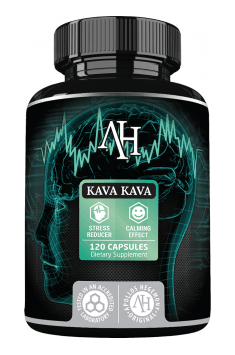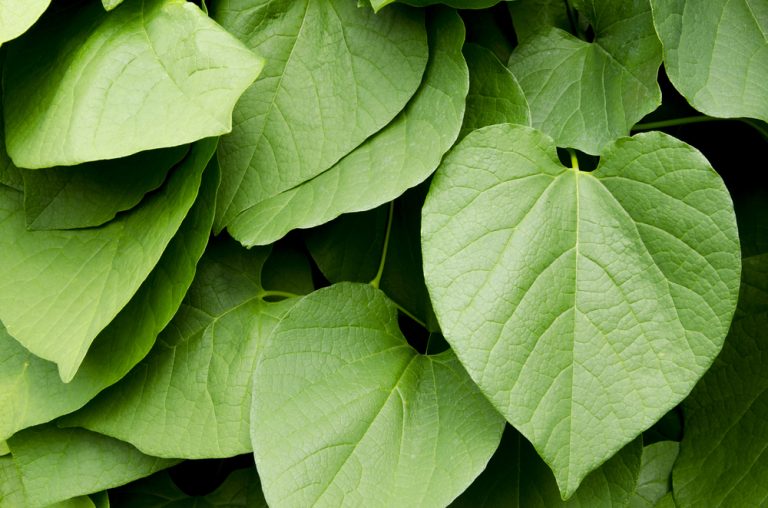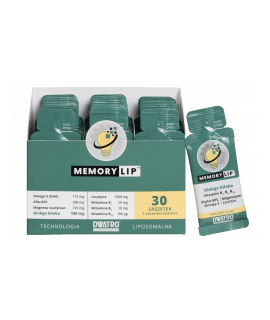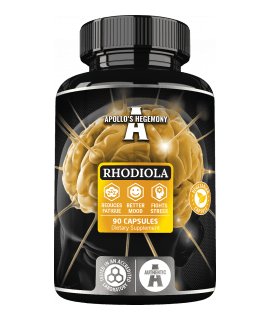Kava kava is an herbal remedy that is used to relieve stress and anxiety and boost sleep. This plant extract has a calming, euphoric effect that some people compare with that of alcohol. Its scientific name is Piper methysticum and it is native to the islands of the Pacific Ocean. Traditionally, people made a paste from the plant's root and mixed it with water or coconut milk to create a drink.
Kava Kava's active ingredients are named kavalactones, which account for 3–20% of the dry weight of the root of the plant.
Studies suggest kavalactones may have the following effects on the body:
- Reduce anxiety
- Protect neurons from damage
- Reduce pain sensations
- Reduce the risk of tumour growths though the evidence is limited to mice

Kava kava from Apollo Hegemony is legal source of Kava kava, highly standardized for bioactive compounds
Anxiety disorders are among the most common psychiatric disorders today. They are commonly treated with talk therapy, medications or both. Kava Kava along with other natural remedies seem to have a positive impact on lowering anxiety and inducing calm. It may work by up regulating GABA receptors in the brain and raising serotonin level helps one feel more relaxed and mentally alert.
Kava Varieties
There are over 105 different Kava varieties and these are grouped into two main categories: Noble Kava and Tudei Kava. Tudei Kavahas been linked to many unpleasant kava side effects including nausea and lethargy, which is why South Pacific Islanders have banned it in some countries. You should avoid buying Tudei kava varieties. Instead look to buy only high-quality products made with fresh and recently sourced, lab-tested Noble kava.
Traditionally, people make kava kava root into a paste and mix it with water or boil it into a tea. It is also possible to buy premade kava tea from some stores. The drug can come in liquid form and mix with other drinks such as juice. There are also tablets and capsules of powdered kava kava available.
Research suggests that the optimum dose may be under 250 milligrams of kava per day.
Precautions, Interactions and Side Effects
For those with a healthy constitution, kava kava has a good safety record when taken on its own in recommended doses. However, it should not be used on a daily basis for longer than three months. It is important to note that Kava Kava is banned in several countries around the world. Including the UK, and France.
In terms of drug interactions, because of its tranquilising effects, it has the potential to react negatively with any drugs that affect the central nervous system. This includes sleeping medications, depressants like alcohol, benzodiazepines such as Valium, antipsychotic medications, and medications used to treat Parkinson’s disease such as levodopa. What generally gets reported, is that the effects of kava kava were intensified, or the effects of the medication or alcohol was intensified. Many may think this is a good thing, but until you’re familiar with kava, how it affects your system, and have worked with it for some time, we highly recommend keeping your kava intake separate from any other potentially-psychoactive substance you might take.
There are some warnings and tips to keep in mind before starting a kava supplement for anxiety, such as the fact that it is not advised to operate any heavy machinery after taking a kava supplement. This is because one of the possible side effects of kava is drowsiness. It's a good idea for those taking this supplement to wait and see how it will affect them. Other possible side effects can include upset stomach and loss of appetite. Those who experience unwanted effects are advised to stop taking kava and to see a doctor if issues persist, though this is not likely.










2 Comments